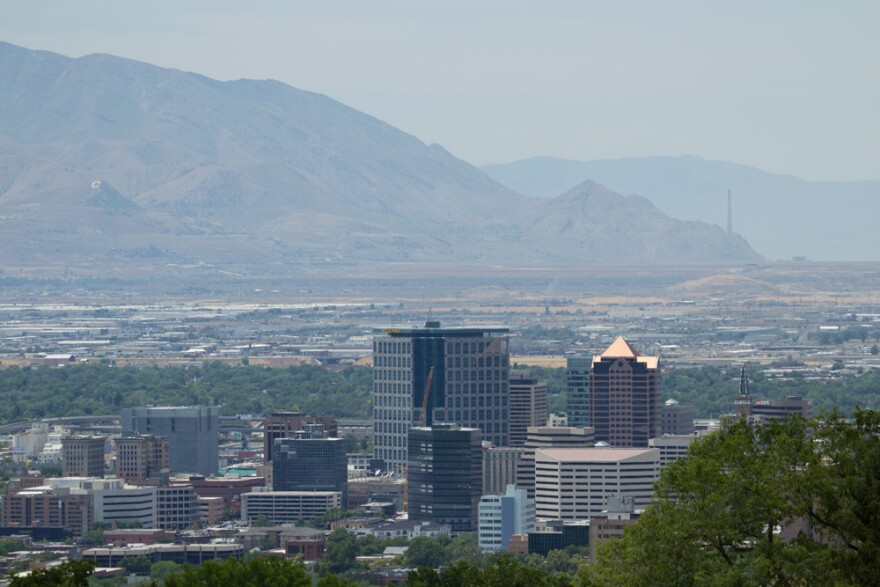Federal regulators have a special category for “Hazardous Air Pollutants.” And, when scientists at the Division of Air Quality went looking a few years ago, they found a few of those 180 pollutants at elevated levels in the Salt Lake Valley.
Then last summer they sampled more often, at more locations, and found some surprising trends. Most troubling were high levels of formaldehyde, a respiratory irritant that’s thought to cause cancer.
Utah’s state toxicologist, Steve Packham, says the health risk is practically insignificant. In fact, he’s estimated that breathing formaldehyde continually at these levels is like smoking a single cigarette every 46 years.
“We’re looking at something with a very, very high microscope,” he says. “And the whole intent of doing that is we don’t want anything to rise to a level where it could be a health problem.”
That’s why DAQ scientists are already planning to dig deeper into hazardous air pollutants next winter and summer.
“We are certain that there is a problem,” says Dave McNeill, whose team at DAQ is doing the research. “We do not have a clue where it’s coming from, and that’s what we’re going to do this next year: identify the source or sources.”
Meanwhile, some observers want to see the DAQ start putting the results to use right away. Michelle Hofmann is one. She’s a pediatrician and founder of the health advocacy group, Breathe Utah.
“These are carcinogens, the air toxics, and it’s lifetime exposures that we base risk on,” she says. “And anything we can do in our own activities to reduce our own exposures reduces that lifetime burden.”
Hofmann would like to see the DAQ coach vulnerable populations – especially people living around highways and industrial pollution sources – to minimize their risk from air pollution. They include simple things like quitting smoking and avoiding outdoor exercise, especially during high-pollution periods.






